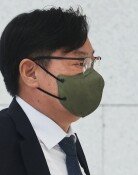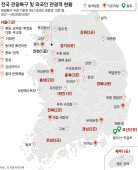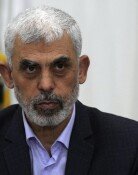Report: NK Not to See Father-to-Son Power Transfer
Report: NK Not to See Father-to-Son Power Transfer
Posted February. 20, 2009 03:10,
North Koreas power transfer is getting renewed attention as domestic and foreign media say supreme leader Kim Jong Il has picked his youngest son Jong Un as his successor.
The questions hovering over the North are if Kim Jong Il can pass on power to his son as his late father Kim Il Sung did; if the North remain politically stable after the transfer; and if Kim is eligible and capable of picking his son as successor.
A man who earned his Ph.D. from the University of North Korean Studies says no to all three questions. Lee Seung-ryeol, 39, wrote a thesis called Study on Changes in North Koreas Suryeong (Great Leader) System and Limitations to its Power Transfer System.
▽ Great Leader system and power transfer
Lee said another transfer of power from father to son is impossible due to the fundamental limits of the Norths Suryeong system.
Kim Jong Il has created a unique system to inherit power from his late father. Masayuki Suzuki, a Japanese scholar of North Korea, echoed Lees view by calling the system something that aims at continuing the Suryeong leadership by transferring power from father to son.
North Koreas power transfer is completed when a successor inherits a Suryeongs revolutionary feat and sets up his own leadership under the same system, said Lee.
Though one of Kim Jong Ils sons is selected the successor, if he fails to create his own governing system, the power transfer will fail, he said.
▽ Dictatorship backfires
On structural reasons for Kim Jong Il to fail to achieve a father-to-son power transfer, Lee said Kim is not a Great Leader.
Kim revised the Norths constitution in 1998 to abolish the post of president and distribute power to the ruling Workers Party, the National Defense Commission, the Supreme People`s Assembly and the Cabinet. He has made it clear that he is a mere successor to the Great Leader (his later father) by calling him the eternal Great Leader in the constitutions preamble.
Lee cited the weakening party as the second structural reason. When first presenting a theory of socio-political life in 1974, Kim said the Great Leader, equivalent to the human brain, takes control of the people through the party.
In the process of consolidating his one-man dictatorship, however, he undermined the parts authority and reduced the party to a nominal political entity. Under the policy of military first since 1990, he elevated the militarys role while weakening the institutional basis of the Great Leader.
Kim Jong Il has monopolized top posts including general secretary of the Workers` Party, chairman of the National Defense Commission, and head of the organization and guidance department of the party, so there is no room for a successor to expand his influence.
▽ Lack of public support and time
Another obstacle to the father-to-son transfer is Kims relatively low approval ratings compared to his late father and lack of time to prepare for the power transfer, said Lee.
The late Kim Il Sung appointed his son heir in 1974 based on solid public support and groomed him for two decades. On the contrary, Kim Jong Il, who is suffering from diabetes and other vascular diseases, seems to have little time to do the same.
The father-to-son power transfer takes much time, Lee said. It needs a son to form his own organization, confidants and discipline under a fathers support. But Kim Jong Il and his son Jong Un have had little time to do so.
▽ Instability in post-Kim Jong Il era
Baek Seung-joo, head of the national security strategy center at the Korea Institute for Defense Analysis, said, A successor must have a power base, personal qualities and abilities.
Despite his selection as the successor by his father, if he lacks these capabilities, he (Jong Un) is highly likely to be ousted when his fathers political life ends.
On this, one government official in Seoul said, Rather than paying attention to Kim Jong Ils possible successor, we should prepare for the inevitable instability the post-Kim Jong Il regime will bring.
kyle@donga.com
Headline News
- N. Korea redefines S. Korea as ‘hostile state’ in revised constitution
- Samsung develops graphic DRAM with industry-leading capacity and speed
- Three questions allegedly leaked via text message during Yonsei Univ. essay test
- China to inject 340 trillion won in loans to support real estate sector
- Dodgers beat Mets to take 2-1 lead in NLCS







